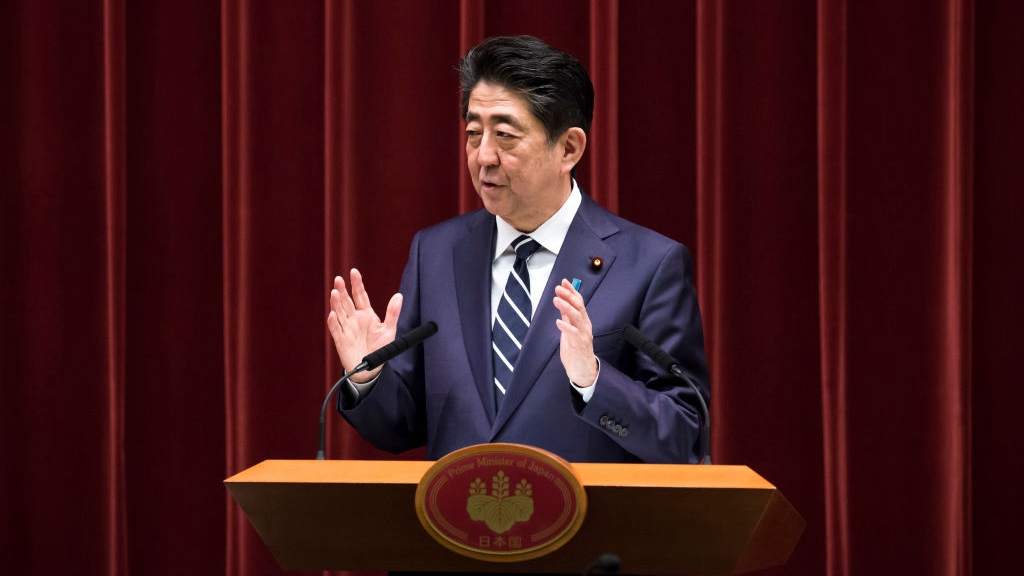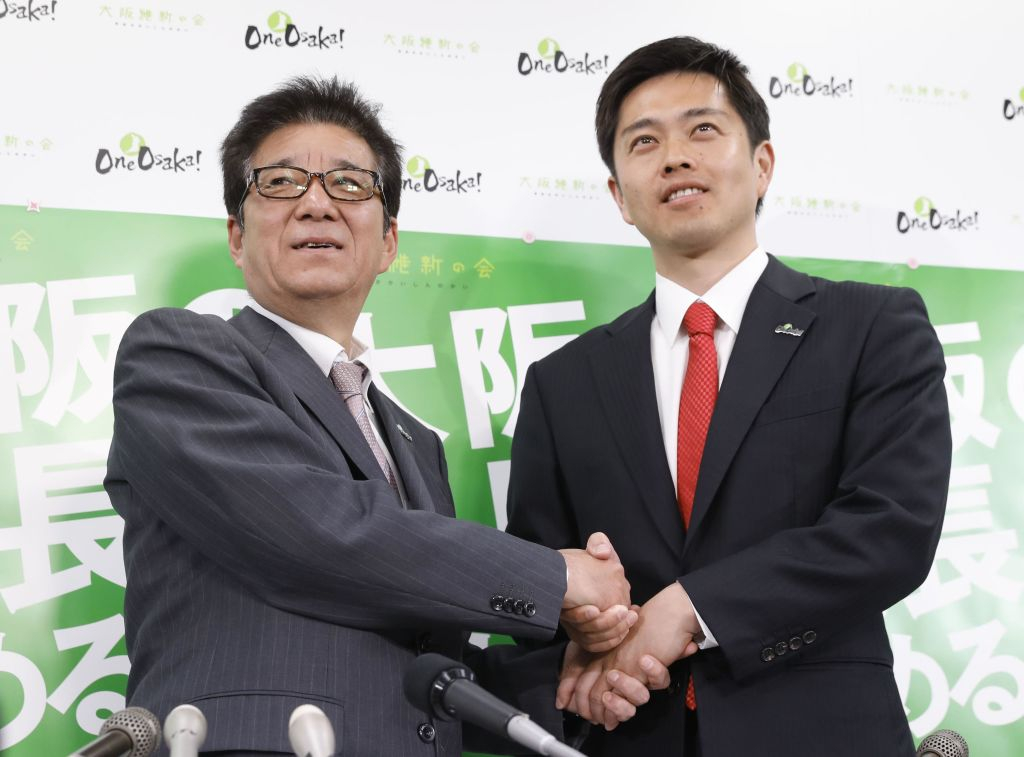
Opinion
11:33, 23-Apr-2019
Abe's LDP stumbles at by-elections ahead of Japan Upper House poll
Chris Deacon

Editor's Note: Chris Deacon is a postgraduate researcher in politics and international relations at the University of London and previously worked as an international commercial lawyer. The article reflects the author's opinion, and not necessarily the views of CGTN.
Japan's governing Liberal Democratic Party (LDP) lost in both Lower House by-elections that took place over the weekend – a concerning stumble for Prime Minister Shinzo Abe ahead of Upper House elections in July.
By-elections were held for Lower House seats in the prefectures of Okinawa and Osaka on Sunday, at the same time as local elections across the country. The by-elections were thought by many to be a good predictor for how the governing party was fairing ahead of the Upper House poll, and these results could point to a dissatisfied electorate.
The losses are, therefore, a major concern for the LDP, which has dominated Japanese politics for most of the post-war period.
In Okinawa, there are some specific factors which Abe's party may be able to point to in explaining their loss. The winner – Tomohiro Yara – was supported by a range of opposition parties and stood on a platform of opposition against deeply unpopular relocation plans for a U.S. air base in the prefecture.

Ichiro Matsui (L), head of Osaka Ishin no Kai and former Osaka governor, shakes hands with former Osaka Mayor Hirofumi Yoshimura after local elections in Osaka, Japan, April 7, 2019. /VCG Photo
Ichiro Matsui (L), head of Osaka Ishin no Kai and former Osaka governor, shakes hands with former Osaka Mayor Hirofumi Yoshimura after local elections in Osaka, Japan, April 7, 2019. /VCG Photo
Issues relating to the U.S. military presence are a constant fixture in Okinawan politics. Several accidents and damaging incidents over the decades have made the bases a popular target for opposition politicians in the prefecture.
In Osaka, the LDP lost to Nippon Ishin no Kai (the Japan Innovation Party) – a right-wing group with its original base – and therefore substantial political support – in the Osaka region. It too, therefore, had some idiosyncratic local characteristics which the LDP could use as an excuse for their loss.
The result, however, was far from a foregone conclusion. Abe and other cabinet minister visited the district to campaign ahead of the election, clearly seeing it as a winnable contest.
The defeat is, therefore, all for more bitter for the LDP, which had not previously lost a by-election during Abe's second term as prime minister, save for one uncontested Kyoto contest in 2012. Abe himself called the results 'very disappointing' and a spokesperson for the LDP vowed to reflect on why the party had lost immediately after the results were announced.
The losses come after a difficult period for the Japanese governing party, in which Abe has had to contend with two high-profile resignations in the last few weeks. These factors all point to concerns regarding LDP popularity ahead of the Upper House polls this summer.

Japanese Prime Minister Shinzo Abe and his wife Akie are welcomed upon their arrival at Paris Orly Airport, April 22, 2019. /VCG Photo
Japanese Prime Minister Shinzo Abe and his wife Akie are welcomed upon their arrival at Paris Orly Airport, April 22, 2019. /VCG Photo
Rumors had been rife that Abe would dissolve the Lower House to create a 'double election' whereby polls would be held for both houses simultaneously. The by-election losses, however, have likely dented these plans as Abe will not want to lose his coalition's two-thirds majority – which it currently enjoys – if he still wishes to pursue constitutional reform.
By law, revisions to the Japanese constitution require a two-thirds majority in both houses, before being approved by a majority of the public in a referendum.
There is still plenty of time before July for Abe to turn things around, however. The beginning of a new imperial era at the end of April will involve nationwide celebrations and provide a distraction for the public. Abe also has an overseas trip coming up, visiting multiple destinations, including the United States.
U.S. President Donald Trump will also shortly visit Japan, including a much-anticipated trip to watch a sumo wrestling contest. Trump has also been promised that he will be the first overseas leader to meet the new Emperor Naruhito, after the abdication of Emperor Akihito occurs.
This all comes ahead of the G20 Summit due to be held in Osaka in late June, which will provide Abe with a further opportunity to galvanize his domestic image as an international statesman ahead of the nationwide polls this summer, where we could still see a 'double election' yet.
(If you want to contribute and have specific expertise, please contact us at opinions@cgtn.com.)

SITEMAP
Copyright © 2018 CGTN. Beijing ICP prepared NO.16065310-3
Copyright © 2018 CGTN. Beijing ICP prepared NO.16065310-3